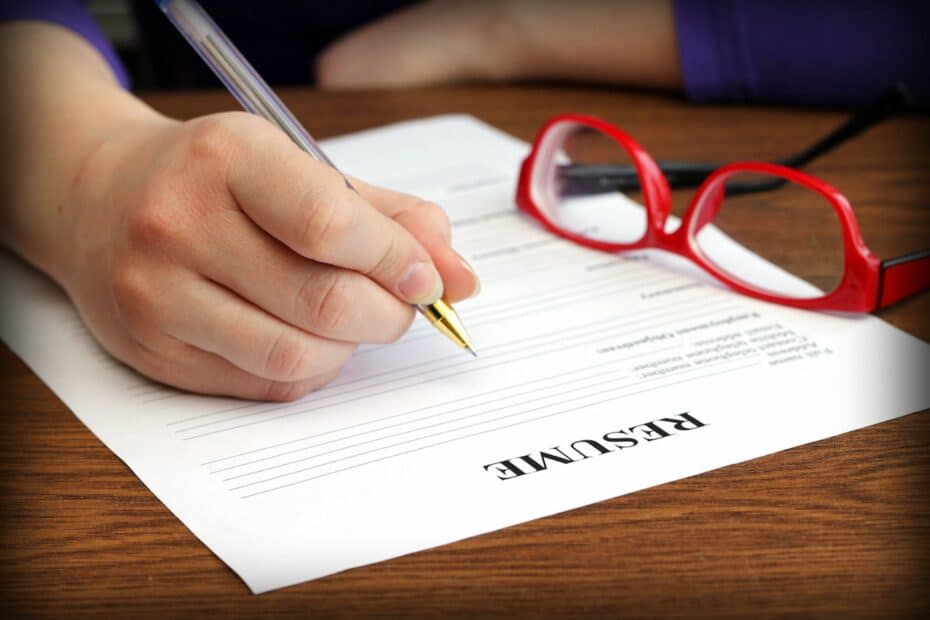Securing a job at a company requires potential employees to go through several stages of screening. And, putting references on a resume can undoubtedly give you an upper hand.
However, there’s one stage when the hiring company gets serious, which requires communicating with someone other than the applicant. This stage is called the job reference check.
Here we will show you how to put references on your resume the right way:
- Know Who to Ask for Job References.
- Understand How to Ask For Job References.
- Enter Complete Information.
- Try to neutralize bad job references on your resume.
- Be Prepared For A Thorough Background Check.
- Boost Your LinkedIn Profile With References.
- Don’t Forget the Essential Details.
Employers Will Search For References

Potential employers get in touch with past employers, teachers, and personal contacts to verify your character, abilities, and qualifications.
They have already built up an assessment of their own from your resume, your professional experience, and your written goals or interests, and the interview itself. But, they need to attest your job references on your resume with the mentioned names.
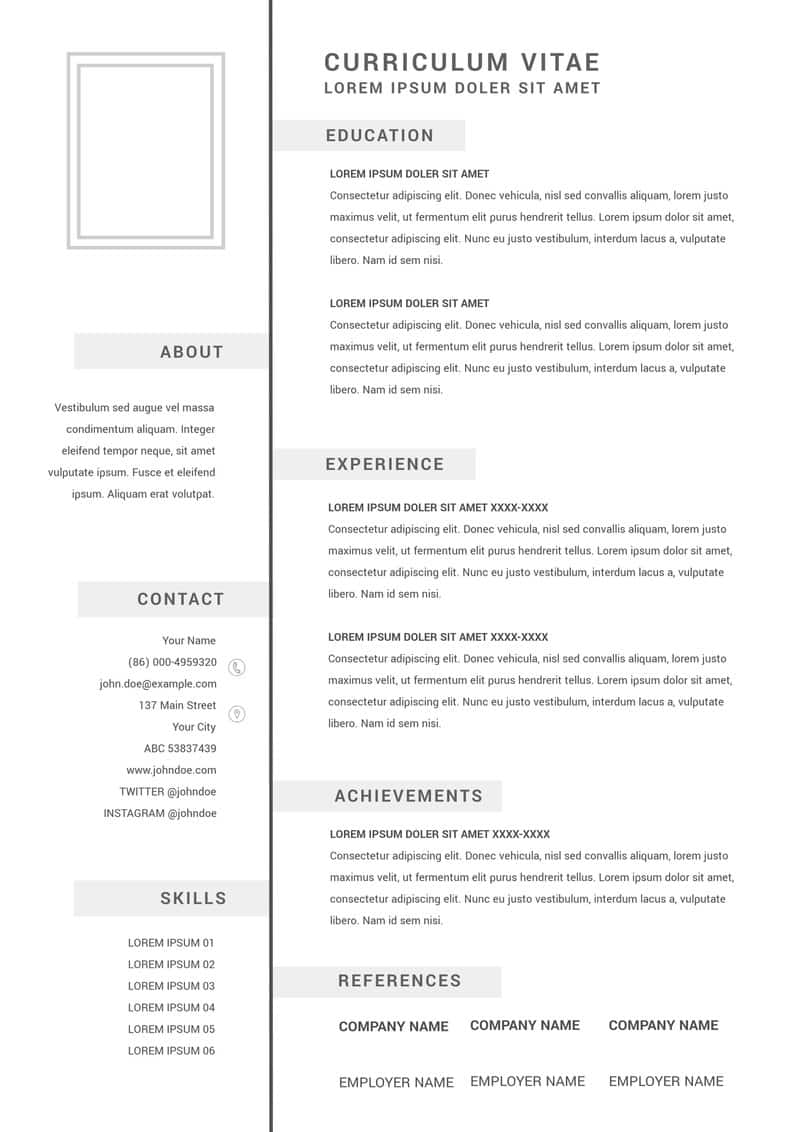
When you’re interested in making a big purchase, like a car or a house, you ask other people who’ve purchased something similar for their opinion. You talk to the past owners (if it’s second-hand) to get an honest personal review of the product, which goes beyond specification digits and all the fabulous things the salesperson told you.
Similarly, when an organization is looking to hire a new employee, they run a reference check to understand their performance.
Almost all job applications require you to put a list of references they can get in contact with on a resume.
In theory, job references are entirely out of your control. You cannot force your last boss to sing praises of your work, nor should you!
However, there are still ways to avoid a negative reference and get one to secure the job. Here we point out some of them.
1) Know Who to Ask for Job References
You should have a list of references ready when you apply for a position.
Some job applications only require your past employers’ contact details, while others might ask for a letter of recommendation.
That’s a basic tip, but it’s never too much to highlight:
Only mention those people as references who you know will say good things about you.
Forego that person with the impressive title, who barely knows you, in favor of the relatively junior person, who knows you and wants to see you succeed.

If you’re still fresh on the job market with nobody to call upon for professional references, use a personal recommendation from the place you volunteer or a college or high school professor.
There may be instances where the hiring manager would like to talk to your current employer. Speak to your boss about reasons you’ve applied for another job and if he would agree to be a reference.
If you are not comfortable doing so, let the hiring company know and give your reasons.
You don’t need to list your current employer as a reference.
If you have just passed out of college and have little or no work experience, somebody from the college administration or your professor also counts as a professional reference.
There are multiple ways to get a reference across to potential employers.
Before that, you need to find out if the person you intend to use as a reference has good opinions about you or not.
2) Understand How to Ask For Job References
Make sure you take permission from the person you want to use as a reference.
Have a friendly conversation and find out what they would say about your performance and character before listing them.
Also, let them know beforehand what you are applying for and when they can expect a call or letter.

Remember that when you provide your former manager’s contact information, the potential employer assumes you’ve told them to expect the call.
It’s believed that they will be available to talk about you.
3) Enter Complete Information
Make a reference list to give at your interview if the recruiter asks for it. Put these references on your resume and mention:
- Name
- Job title
- Company name
- Division or department
- Telephone number
- Email address
Ensure that all details of your references are correct and the contact information is up-to-date and in use.
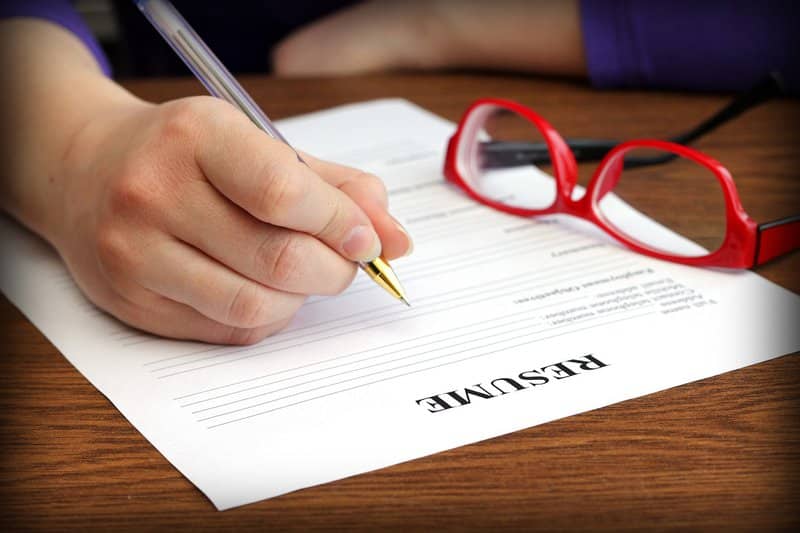
Give your references a call to confirm that the number belongs to them and it is in use.
To be safe, it’s recommended to include at least four references on your resume if one or two become unavailable.
4) Try to neutralize bad job references on your resume
It is also illegal for a past employer to give a negative reference that defames your character, yet it continues to happen.
The founder of Allison & Taylor, a job reference check firm, Jeff Shane, spoke about their company’s employee verification. She said:
“Unfortunately, bad references are far more common than most people realize. About half of the reference checks we perform come back with negative comments.”
While many companies may have the policy to inform only the job title and employment dates, employees frequently violate such policy. Providing a lousy reference may be inevitable for some people.

If you’re worried about getting a bad reference, call your former boss and try to understand his opinion about you in advance.
If you’re not convinced, try to provide another person as a reference in that company, like the Human Resources Manager.
If you feel that you are repeatedly hitting a dead end after an interview, you might be a victim of a bad reference.

Check up on your listed references and ask them, indirectly, if employers contacted them and what was said. You might be able to identify the person. But if not, change the whole list.
5) Be Prepared For A Thorough Background Check
Preparing a shortlist of references for yourself is a good idea.
Firstly, it is essential to know what kind of questions can be asked about you from your referrals.
In general, they are related to your previous job performance and the skills the job requires.
Different questions merit different answers. Also, you should avoid putting a name on the job reference list for whom you are ambiguous.

There are also certain limitations about what a reference can say about you. Hence, choose professionals who have admired your work and know you better in a professional sense.
If you doubt what a particular reference might say, getting that name off the list is better.
Try to keep it professional as people who are very close to you might end up saying something intricate about you that can harm your chances with the job.
6) Boost Your LinkedIn Profile With References
Networking sites like LinkedIn have become a hot spot for employers. They often search for LinkedIn profiles that suit their needs.
This is relatively new, but the trend points towards an optimized chance of getting employed if your profile is filled with references.
Besides that, if you have a public recommendation in your LinkedIn profile given by your former boss or the former HR Director of your company, they will probably keep their opinion not to contradict themselves or simply because they liked your job performance.
While looking for references on LinkedIn, it is necessary to know how to get recommendations on the website and who you can ask for references. Sufficient research on how to manage the received recommendations is also required.
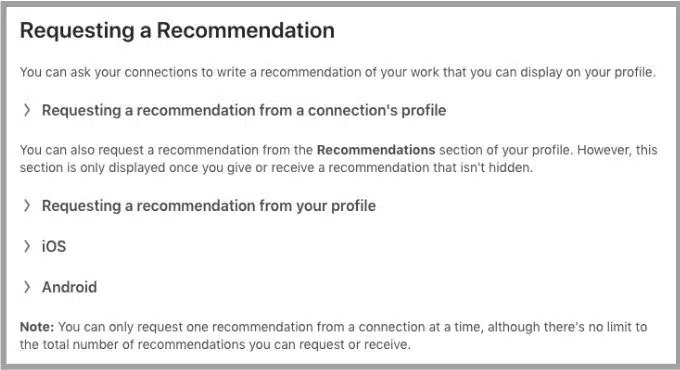
The old-school ways of getting references still retain the same importance. But the professional networking sites are gaining prominence as more and more employers are looking towards them to scout for employees.
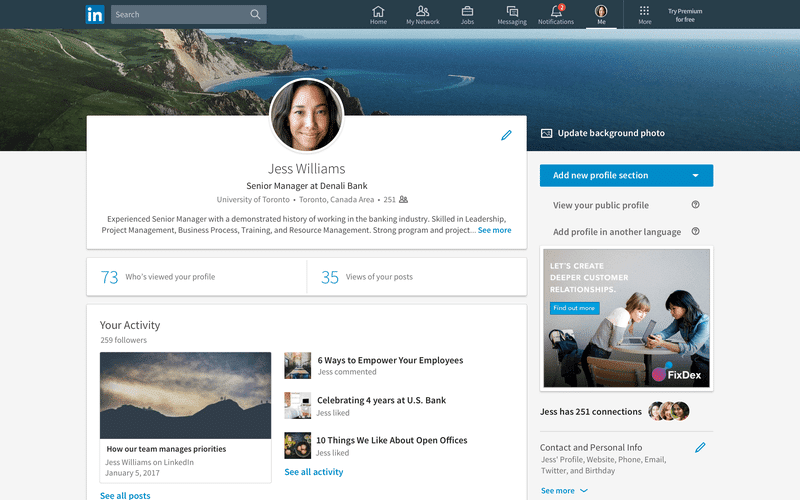
Getting recommendations and having reliable references on your resume can be a challenging task.
Even tougher can be the task of knowing how to make the most of such references. Several factors determine whether the recommendations you get will do you any good or won’t.
The task is tricky, ranging from getting your reference across to the employer to knowing which references are good enough for you.
However, you can easily manage it given the proper research and familiarity with a recommendation’s limitations.
An excellent way to start is by making a list of potential references with a reasonable opinion of your professional capacity and integrity.
7) Don’t Forget the Essential Details In The Process When Adding The References on a Resume
Apart from knowing who is possibly a positive reference, it is necessary to understand how to use those references. So don’t forget to consider these critical points as well:
- Be polite and phrase your request carefully not to put the person on the spot. You should ask if they would be comfortable being your reference.
- If the person is open to participating, ask for a possible letter of recommendation or a LinkedIn recommendation (look for information about gaining recommendations on the professional networking website).
- Follow up and thank your job references after they agree to help you.
- Keep in touch and keep your references up-to-date, and think they are an essential part of your network. Consider being their reference as well and let them know about your accomplishments and your career success.

Also, It would take time, but once you put your positive job references on a resume, your chances of attracting an employer online multiply.
In Conclusion
A professional reference is by far the best form of recommendation you can get. It is essential to know how to use that reference and how to recognize a trusted professional reference.
For a professional reference to work efficiently for you, your connection needs to know about you in a work-related sense. A relative who has never worked with or around you will know you only as a relative.
It is one way to stand out among your peers if you properly list those job references on a resume. A professional reference can often be a teacher, a former employer, or a colleague at your previous office.
So be prepared. Know the person you will ask for a reference. Let them know they are your reference beforehand, anticipate the type of question the recruiter will ask, and support your references with LinkedIn recommendations. Also, don’t lie because employers will eventually do the background check.
Good Luck! What else do you suggest?

Christian has over ten years of experience in marketing agencies. Currently, he has been dedicating his time to a tech startup and also writing for major publications. He loves podcasts and reading to keep up with the latest trends in marketing.
